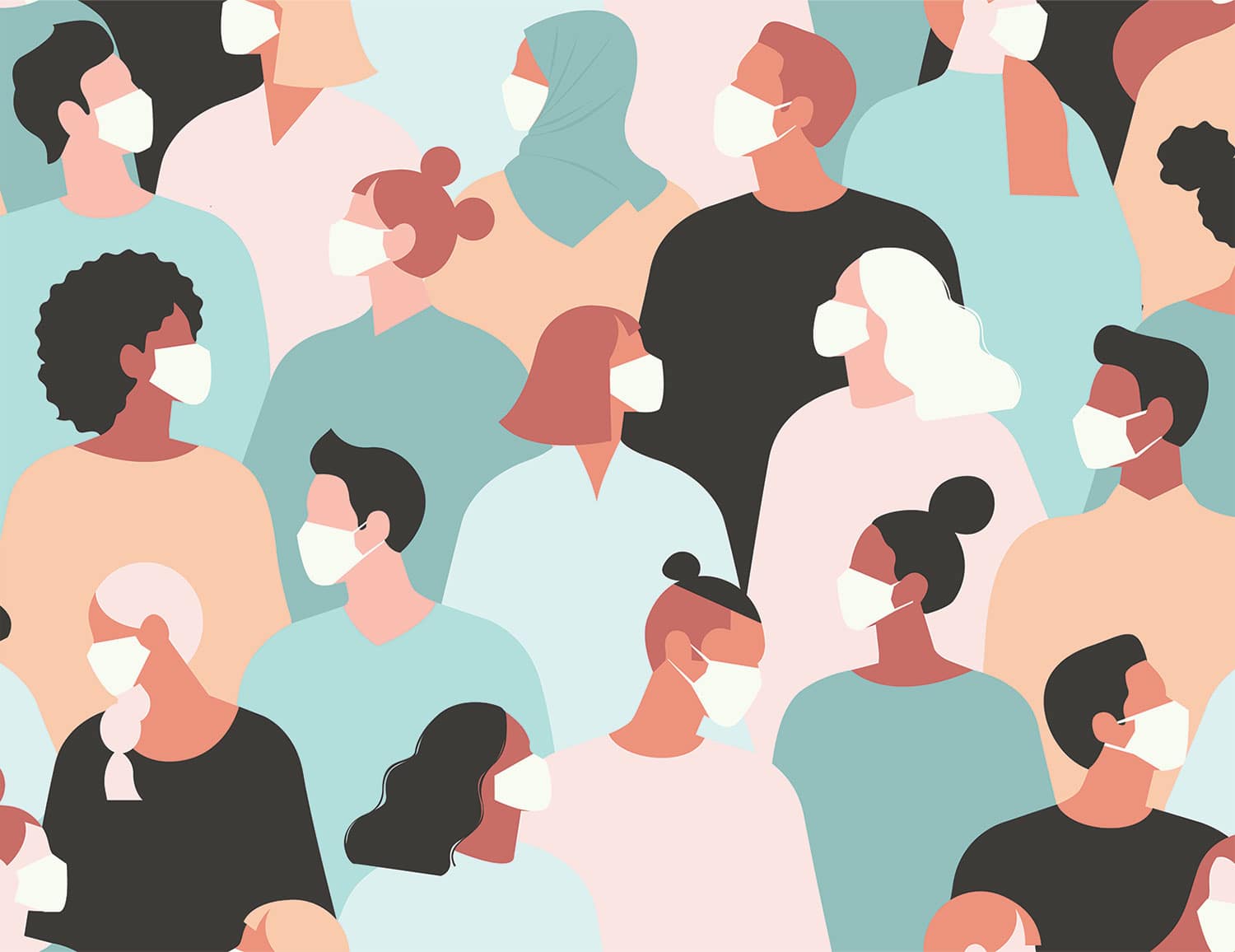AT THE AMERICAN ASSOCIATION FOR CANCER RESEARCH (AACR) VIRTUAL ANNUAL MEETING I ON APRIL 28, an international array of oncologists and cancer researchers from China, Italy, Spain, France and the U.S. convened to share early data on the intersection between COVID-19 and cancer. (The AACR publishes Cancer Today.)
The session was headlined by a multicenter study on the vulnerability of cancer patients to COVID-19 presented by Hongbing Cai, an oncologist at the Hospital of Wuhan University in China. The study looked at 105 cancer patients with COVID-19 and an age-matched set of 536 COVID-19 patients who did not have cancer. The data were also published April 28 in Cancer Discovery.
COVID-19 patients with cancer recorded higher rates of severe events—including death, admission to the ICU, severe or critical symptoms, and needing invasive mechanical ventilation—than did those without cancer. Furthermore, patients with cancer “deteriorated more rapidly” than those without, according to the study, and their average length of hospitalization was more than nine days longer.
For More Information
Read more coverage here from Cancer Today on the various impacts of the coronavirus on people with cancer.
Cancer survivors not currently undergoing treatment, as well as those receiving active treatment, seemed to bear a greater risk of worse outcomes from COVID-19 than patients without cancer. “Individuals with cancer but no longer on active treatment still had a higher risk of disease severity, complications and mortality,” Mauricio Santillana, director of the Machine Intelligence Lab at Boston Children’s Hospital and a co-author of the paper, said in an email to Cancer Today.
The study found that patients with lung or blood cancer were more likely to experience a severe event than patients with other types of cancer. Other presenters during the session also commented on risk factors for poor COVID-19 outcomes related to cancer type. Carlos Gomez-Martin, an oncologist at 12 de Octubre University Hospital in Madrid, noted that lung involvement—due to lung cancer or lung metastases—was associated with a higher risk of death. Fabrice Barlesi of the Gustave Roussy Cancer Campus in Villejuif, France, highlighted patients with blood cancer as being at risk for clinical worsening.
There were also associations between the type of treatment patients received for their cancer and COVID-19 outcomes. Cai and her team observed that patients who had undergone surgery were at higher risk of a severe event, and that treatment with immunotherapy was associated with high risk of death and critical symptoms. At Gustave Roussy, patients with advanced cancer who had been treated with chemotherapy in the three months prior to diagnosis were discovered to be at heightened risk of poor COVID-19 outcomes.
Cai’s study also revealed that patients with metastatic cancer were at greater risk of severe events, while patients with non-metastatic disease did not appear to be at increased risk of severe outcomes compared to the general population.
Marina Garassino of the Fondazione IRCCS Istituto Nazionale dei Tumori in Milan presented data on the first 200 patients to be included in an international registry of thoracic cancer patients with COVID-19, noting an “unexpectedly high” rate of death in these patients, at nearly 35%. Nearly three-quarters of the patients in the registry had metastatic cancer, and most of the patients had lung cancer. Garassino did not report any associations between cancer treatment type and mortality.
The bigger picture painted by the various studies presented is that cancer patients do face a greater risk of worse outcomes from COVID-19. There are various contributing factors that will impact a person’s individual risk, but avoiding infection in the first place is desirable. This can be complicated by the need for patients to visit medical facilities for cancer treatment, thus risking exposure to the coronavirus. Cancer centers around the world have been modifying their practices in response to the pandemic, such as screening for symptoms of COVID-19 at entrances, limiting visitors, switching to telemedicine where possible and altering treatment locations and schedules to minimize exposure.
“The recommendations that cancer centers and other hospitals have made to delay cancer care in order to reduce risk of infection are supported by the data in this study,” said Santillana of the work published in Cancer Discovery.
The current pandemic threatens to overwhelm health care systems. Intensivist Louis P. Voigt of Memorial Sloan Kettering Cancer Center in New York City called for vigilance so that existing disparities in access to care don’t become even more entrenched.
“The time for action is now,” said Voigt at the close of his presentation. “The most vulnerable among us can fall through the safety net if we don’t pay attention. We need to create a more robust safety net to shield them from the effect of cancer and COVID-19, because the disparities and other social determinants of health put them in a much higher category of vulnerability.”
Cancer Today magazine is free to cancer patients, survivors and caregivers who live in the U.S. Subscribe here to receive four issues per year.





